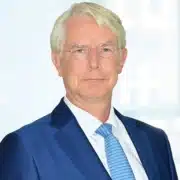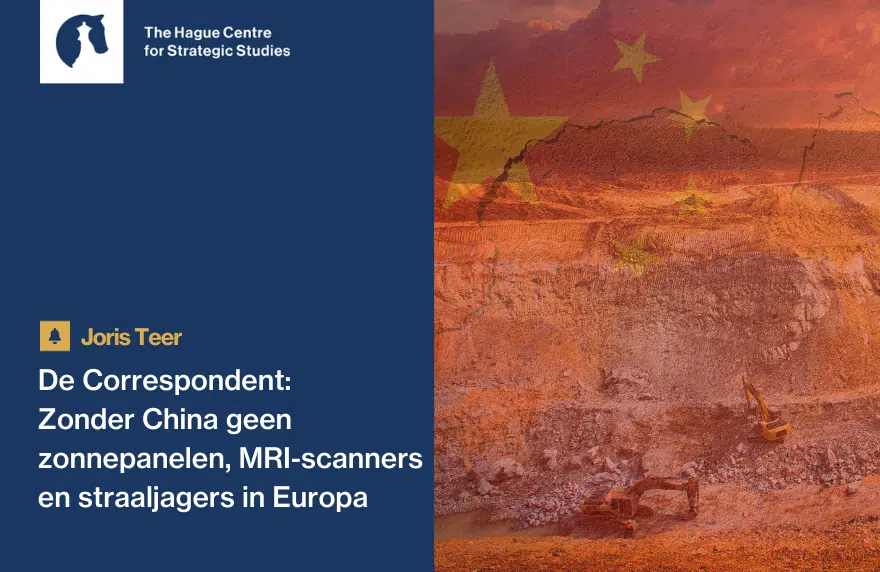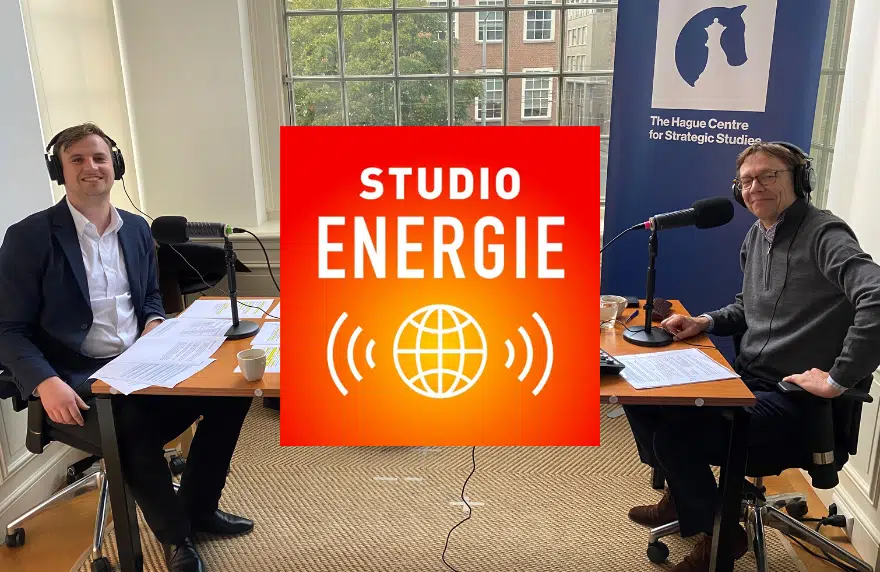Nederland kan economisch worden ontwricht als geopolitieke competitie leidt tot exportverboden voor kritische grondstoffen en verstoring in de productie en aanvoer van halfgeleiders. Dit concluderen onderzoekers Joris Teer, Mattia Bertolini, en Benedetta Girardi in een nieuw rapport van het Den Haag Centrum voor Strategische Studies (HCSS).
De oorlog in Oekraïne is een uiting van een onderliggende trend: grootmachten, oftewel landen met uitzonderlijke politieke, economische en militaire macht, zijn verwikkeld in steeds hoger oplopende geopolitieke competitie. Deze ontwikkeling kan Nederland ontwrichten omdat het de fundamenten van Nederlandse welvaart, welzijn en veiligheid in gevaar brengt.
Een nieuwe studie van het Den Haag Centrum voor Strategische Studies (HCSS) brengt mogelijke gevolgen in kaart van (een aaneenschakeling van) geopolitieke crises door de verharding van de competitie tussen grootmachten voor de maatschappelijke stabiliteit van en in Nederland. In het bijzonder kan een crisis in Oost-Azië de toelevering van grondstoffen uit China en chips uit Taiwan ernstig verstoren, zo waarschuwen de onderzoekers.
Ter illustratie beschrijven de auteurs twee geopolitieke crisisscenario’s die zich tussen 2028 en 2032 afspelen: een embargo van kritieke grondstoffen door China opgelegd aan de EU en een Chinese maritieme blokkade van Taiwan. Beide scenario’s zouden ernstige gevolgen hebben. Grondstoffen zijn namelijk niet alleen bouwstenen voor de energietransitie en chips niet alleen voor digitalisering: zowel grondstoffen als chips maken het functioneren mogelijk van gehele vitale sectoren, namelijk (1) de medische sector; (2) het defensie- en veiligheidsdomein; (3) het duurzame energiesysteem; (4) duurzame mobiliteit; en (5) ICT.
Dit rapport voegt hieraan een nieuw perspectief toe door specifiek de mogelijke gevolgen van verstoringen in de levering van grondstoffen en chips in kaart brengt voor deze vitale sectoren in Nederland, en daarmee ook voor de maatschappelijke stabiliteit van ons land. De studie schetst een noodsituatie die de komende vijf tot tien jaar kan ontstaan als Nederland en de EU niet op korte termijn grootschalig actie ondernemen om geopolitiek schokbestendiger te worden, onder andere door ongewenste afhankelijkheden te verminderen. Door de gevolgen voor welzijn, welvaart en veiligheid in Europa van een geopolitieke crisis in Oost-Azië inzichtelijk te maken poogt het rapport aan te sporen tot actie.
Auteurs: Joris Teer, Mattia Bertolini en Benedetta Girardi.
Met bijdragen van: Pieter Bindt, Lucia van Geuns, Rob de Wijk, Michel Rademaker, Eline de Jong, Abe de Ruijter, Frederik Mertens, Giovanni Cisco en Adam Meszaros. Visualisaties: Jelle van der Weerd.
Dit onderzoek is verricht door HCSS in opdracht van de Nederlandse politie, als onderdeel van het meerjarige programma Strategische Monitor Politie. Dit programma heeft tot doel een ‘van buiten naar binnen’ en toekomstgerichte blik op en duiding van relevante trends en ontwikkelingen te geven, om daarmee de strategievorming van de Nederlandse politie te ondersteunen.
Zie ook: Maatschappelijke Ontgoocheling van de Middenklasse | Optreden, Oorzaken en Gevolgen













